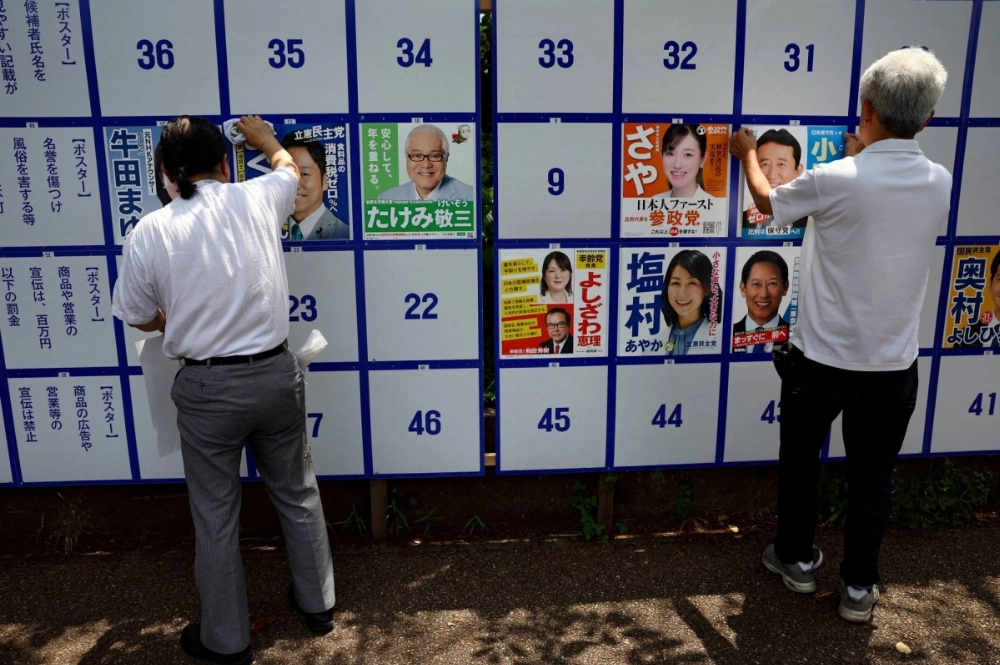Tariffs are far down the list of priorities for Japanese voters ahead of Upper House elections that might upend the political landscape in Japan.
Only 8% of 1,913 voters surveyed by NHK from June 11 to June 13 said that tariffs were their top concern.
The cost of living, social insurance and demographic issues were far more important to them despite Japan being locked in a brutal trade war with the United States over high tariffs put into place and planned by U.S. President Donald Trump.


















With your current subscription plan you can comment on stories. However, before writing your first comment, please create a display name in the Profile section of your subscriber account page.